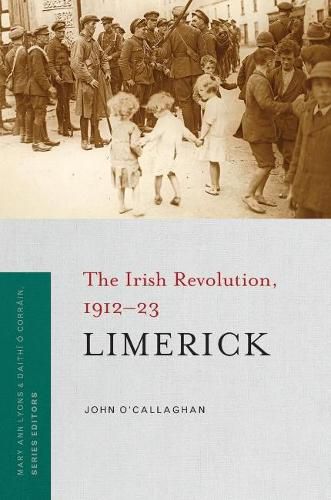Readings Newsletter
Become a Readings Member to make your shopping experience even easier.
Sign in or sign up for free!
You’re not far away from qualifying for FREE standard shipping within Australia
You’ve qualified for FREE standard shipping within Australia
The cart is loading…






Limerick was a key social, political and military battleground during the Irish revolution of 1912-23. By examining a wide range of contemporary sources, O'Callaghan reveals what life was like for people from all sectors of Limerick society during these turbulent years.
In 1912, the home rule movement was the dominant political force in the city and county, but support for this cause ebbed away during the First World War. Limerick was particularly prominent during the War of Independence between 1919 and 1921. As civil war raged in the summer of 1922, Mayor Stephen O'Mara said that the people of Limerick desired ‘food, wages and work - not war’. There was little respite until the summer of 1923, and even then bitter land and labour disputes persisted. The revolution in Limerick was divisive. The middle classes were satisfied that spiralling lawlessness was contained. Radicals hankered after lost opportunities for greater change. Some members of the Protestant community believed that sectarian impulses had been a factor in their dramatic demographic decline.
$9.00 standard shipping within Australia
FREE standard shipping within Australia for orders over $100.00
Express & International shipping calculated at checkout
Limerick was a key social, political and military battleground during the Irish revolution of 1912-23. By examining a wide range of contemporary sources, O'Callaghan reveals what life was like for people from all sectors of Limerick society during these turbulent years.
In 1912, the home rule movement was the dominant political force in the city and county, but support for this cause ebbed away during the First World War. Limerick was particularly prominent during the War of Independence between 1919 and 1921. As civil war raged in the summer of 1922, Mayor Stephen O'Mara said that the people of Limerick desired ‘food, wages and work - not war’. There was little respite until the summer of 1923, and even then bitter land and labour disputes persisted. The revolution in Limerick was divisive. The middle classes were satisfied that spiralling lawlessness was contained. Radicals hankered after lost opportunities for greater change. Some members of the Protestant community believed that sectarian impulses had been a factor in their dramatic demographic decline.